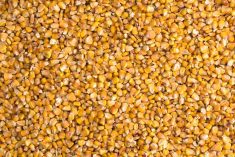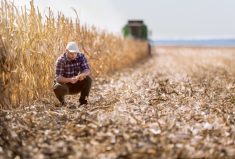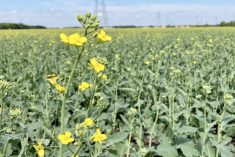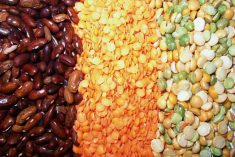A new federal government computer program to measure potential cuts in farms’ greenhouse gas (GHG) emissions will get a shakedown using farmers’ actual data.
The Soil Conservation Council of Canada (SCCC) said it will evaluate Agriculture and Agri-Food Canada’s calculator, called Holos, with members of the council’s “Taking Charge Team” in every province testing the system against farmers’ data.
AAFC would then modify the program into a final version for field use, based on SCCC data.
Read Also

Dryness poised to threaten Saskatchewan crops
Crops in Saskatchewan are developing in opposite directions, the province’s latest crop report said. Growing conditions in the province vary, with some areas receiving enough rain while other locations are experiencing crop stress due to hot, dry conditions.
“At a time when the agricultural industry is under pressure to reduce its carbon-based emissions, this tool offers producers the opportunity to identify and set specific reduction goals,” SCC executive director Glen Shaw said in a release Tuesday.
Holos, according to AAFC, estimates carbon dioxide, nitrous oxide and methane emissions from fermentation and manure management, cropping systems and energy use. Carbon storage and loss from tree plantings and changes in land use and management are also estimated, AAFC said, resulting in a whole-farm GHG estimate.
The calculator can analyze on-farm conservation management scenarios and conservation practices such as zero tillage, rotations with perennial forages, shelterbelts and riparian buffers, to work out a farm’s potential reductions in GHG emissions.
The first phase of evaluation is now complete, the council said Tuesday, after Taking Charge Team field agrologists and team leaders attended a one-day workshop in Ottawa.
“AAFC demonstrated the latest version of Holos in the workshop and field people were allowed to do some hands-on training,” Shaw said. “Our hope is that the calculator will eventually be brought into a longer-term plan by AAFC to help producers address GHG and climate change issues.”
The SCCC’s funding for this project will flow through the Advancing Canadian Agriculture and Agri-Food (ACAAF) Saskatchewan program, Shaw said, but “because we plan to conduct this testing program across Canada, it is open to funding partnerships with agencies throughout the country interested in evaluating the product in the field and extending it to producers.”















